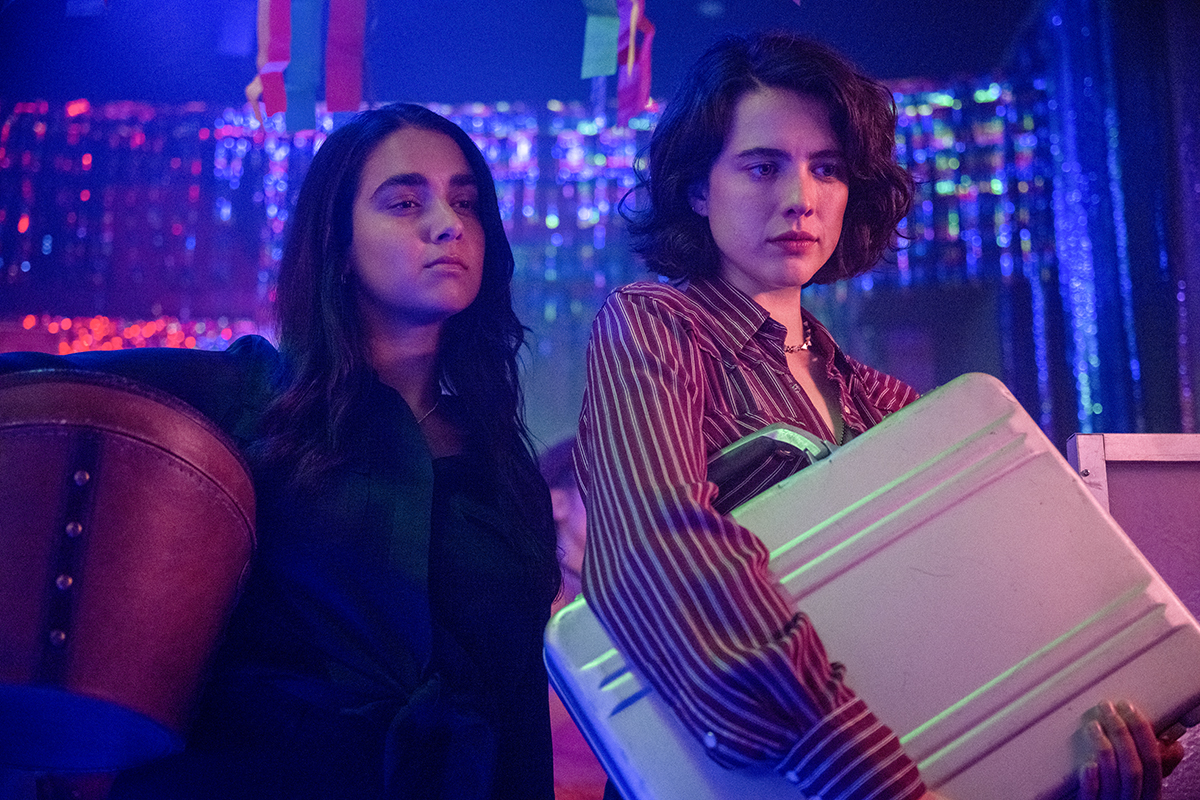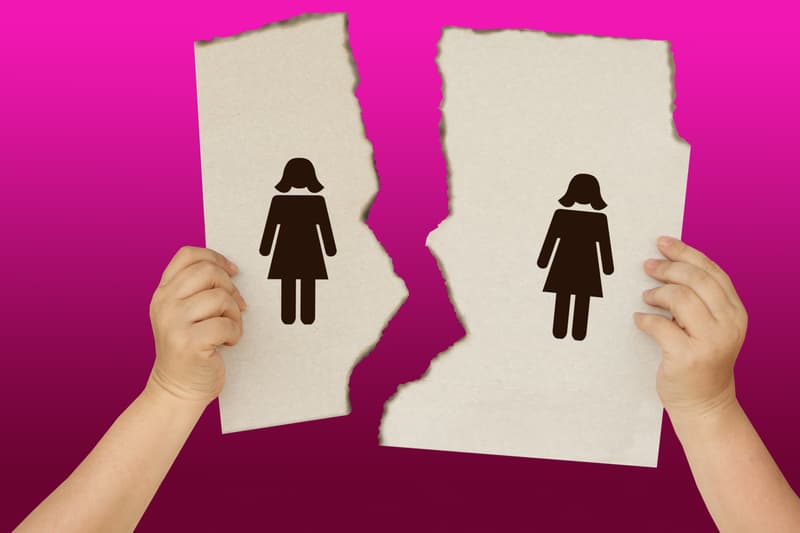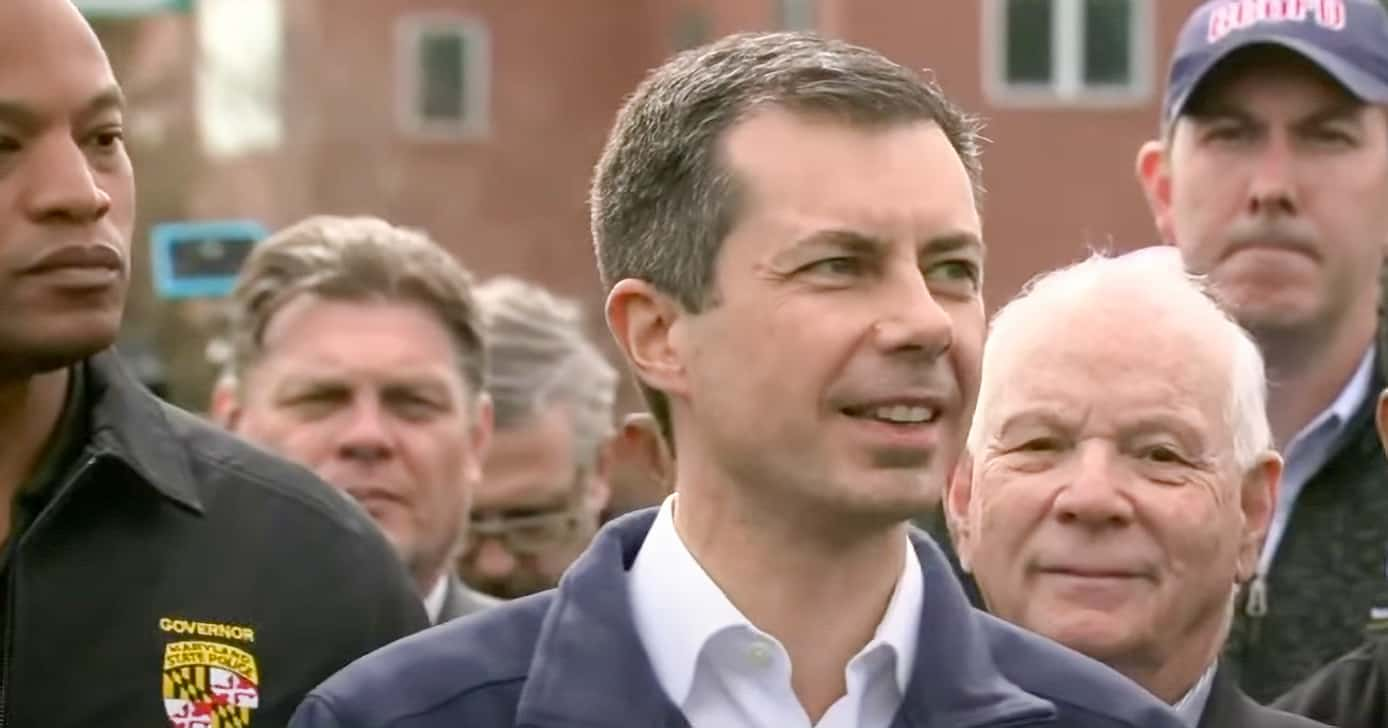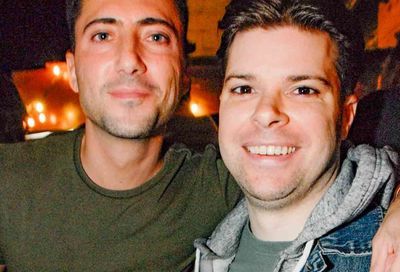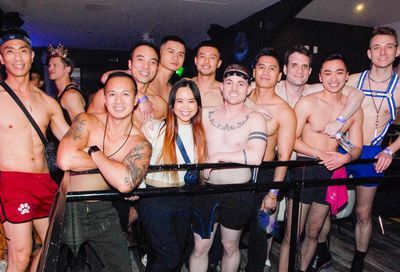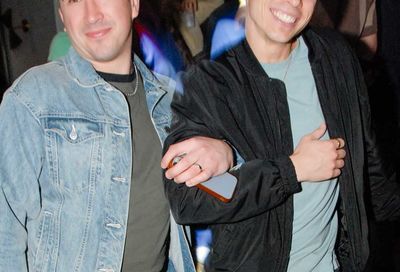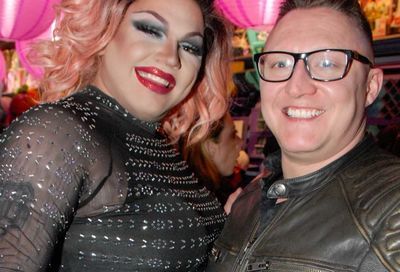One More Step
Gay marriage gets its day in Maryland's high court
No one knows how long it will take Maryland’s Court of Appeals to reach a decision on the fate of a 1973 state law that prohibits legal marriage recognition for same-sex couples. The seven judges who heard oral arguments for and against the law gave no indication on how or when they would rule.
But for the 19 gay men and lesbians who initiated the case more than two years ago, with the help of the American Civil Liberties Union and Equality Maryland, the opportunity to finally be heard in Maryland’s highest court was a victory of its own.
”This day has been a long time coming,” said Dan Furmansky, executive director of Equality Maryland. ”The brave souls you see behind me…have opened up their lives to scrutiny in an attempt to make life better for gay and lesbian Marylanders and their families.”
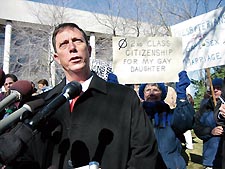 |
Kenneth Y. Choe, an ACLU attorney, spoke on behalf of the group, which includes one widow and nine couples. They garnered national attention in 2004 when they filed a suit against the 1973 state statute that defined marriage as a union between a man and a woman. In January, Baltimore Circuit Court Judge M. Brooke Murdock ruled the law discriminatory, which sparked an appeal from the state.
Choe remained optimistic after his oral arguments, which included discussions of the state constitution, its provision of equality and the importance of legal recognition among same-sex couples during times of crises, such as medical emergencies.
”This court does protect people in Maryland under the constitution and we believe that that tradition will extend to lesbians and gays as well,” he said after the hearing.
”We are confident that the court will see what many Marylanders have already seen, which is the gross unfairness that the exclusion of same-sex couples works upon these families behind me, as well as families across the state. We believe that the court will carefully scrutinize the arguments of both sides, but we believe that that careful scrutiny favors our side of the argument.”
Furmansky shared some of the ”gross unfairness” he’s encountered as the leader of the state’s equal rights group.
”I know state employees who couldn’t take bereavement leave when their partners passed away because they weren’t considered family,” he said. ”I know a woman who was employed by the state of Maryland for 15 years, when her partner got ovarian cancer, but she couldn’t cover her partner on her health insurance plan. Her partner ended up working until her dying day rather than focusing on her health, for fear of losing health insurance.”
Del. Don Dwyer (R) commended Robert Zarnoch, a lawyer for the state, for defending the 1973 statute. Zarnoch said the law is not discriminatory because it includes gays – that is if they want to marry the opposite sex, meaning the law is granted equally to all men and women.
Dwyer said the issue would be best resolved if left in the hands of the legislature.
”I think the court will ultimately send [this issue] back to the legislature for a decision since we’re dealing with the definition of marriage,” he said.
”It’s clearly been the indication from other states around the country that it is a matter for the legislature to decide and not the court, and I think we’re going to see the outcome of that here in Maryland as well.”
Dwyer said he has focused his efforts on reintroducing a state constitutional amendment that defines marriage as a union between a man and a woman only.
”We’ve already initiated the constitutional marriage amendment again, from last year, and we’ll be working in the direction to make sure that we at least get that on the floor for a vote sometime in the next four years,” he said.
”The outcome is not mine to decide. [My] duty, as a representative for the people of Maryland, is to put forward the amendment, to put forward the battle on the House floor and to let the members vote as their conscience and constituency could have them vote.”
Dwyer was supported by Doug Stiegler, executive director of the Association of Maryland Families, and state Sen. Janet Greenip (R), who sponsored Dwyer’s marriage amendment last year.
Unlike Dwyer’s efforts to alter the constitution, Furmansky said the people involved in this case ”don’t want the state of Maryland to re-define what a legal marriage means. They want the state of Maryland to open up legal marriage to them, and to let them be a full part of their communities and of this state.”
”We’re not here to make life uncomfortable for our neighbors in Maryland,” he said.
”We’ve always been here, since the beginning of time, gays and lesbians, and what we’re asking for you now to do is to allow us to share in the happiness, security, stability and the health that everyone else can know by being legally married.”
Support Metro Weekly’s Journalism
These are challenging times for news organizations. And yet it’s crucial we stay active and provide vital resources and information to both our local readers and the world. So won’t you please take a moment and consider supporting Metro Weekly with a membership? For as little as $5 a month, you can help ensure Metro Weekly magazine and MetroWeekly.com remain free, viable resources as we provide the best, most diverse, culturally-resonant LGBTQ coverage in both the D.C. region and around the world. Memberships come with exclusive perks and discounts, your own personal digital delivery of each week’s magazine (and an archive), access to our Member's Lounge when it launches this fall, and exclusive members-only items like Metro Weekly Membership Mugs and Tote Bags! Check out all our membership levels here and please join us today!




